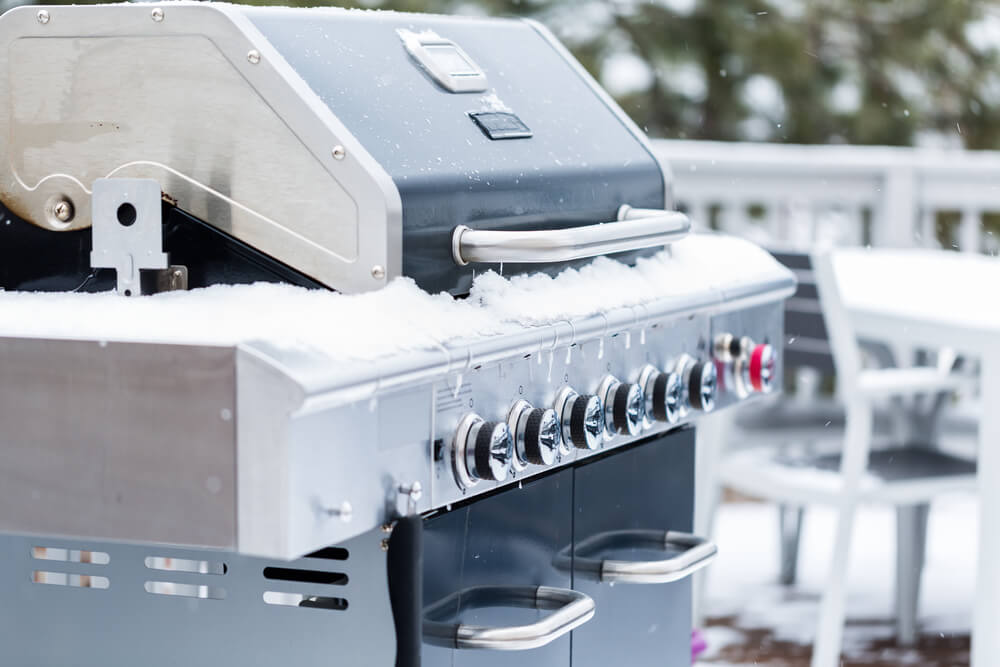
As much fun as it is to enjoy your outdoor kitchen all summer long in the warm sun, the cold weather eventually settles in and puts your outdoor cooking on pause for the season. Winterizing your outdoor kitchen can help protect the area from harsh winter conditions. But, the timing for doing so can vary depending on where you live and your local climate. Take a look below as we guide you through some important considerations to help you know when it’s time to winterize your outdoor kitchen.
So, When’s the Right Time to Winterize?
The short answer is, it depends. The climate where you live may be more temperate with mild and short winters. Or, you may live in an area where temperatures already drop below freezing early in the fall. So, depending on your location, you may need to winterize earlier or later than others.
In general, there are a few considerations to help you determine when it’s the right time to winterize your outdoor kitchen where you live.
When is the First Freeze?
The biggest determining factor for when you should winterize your kitchen is when you expect the first freeze. Typically, you can expect this to occur in the late fall, though if you live up north this may happen earlier in the year.
Keep your eye on the temperature and weather forecasts to help time the winterization of your outdoor kitchen. Doing so will help prevent damage to your appliances, plumbing, and other outdoor kitchen fixtures once the temperatures plummet.
What Elements are in Your Outdoor Kitchen?
The various elements that make up your outdoor kitchen can also help determine when you should winterize the area. In other words, when and how you winterize your various appliances, equipment, plumbing, and cabinets can vary widely.
For each of your appliances and pieces of equipment, make sure to consult with the manufacturer’s guidelines about any necessary winterization requirements or winter storage suggestions. Their guidelines can help you time the winterization of the various appliances like the stove, oven, fridge, and others.
Possibly the most pressing element for winterization is your plumbing. In general, the sink or dishwasher will need to have the water lines drained and disconnected until the warmer weather returns. So, this will need to be done preventatively before the first freeze, ideally.
General Winterization Guidelines for Outdoor Kitchens
Aside from your local climate and the manufacturers’ guidelines for your outdoor kitchen appliances and equipment, there are some general timing considerations for winterizing the area.
No matter where you live, it’s generally recommended to cover or store appliances and all outdoor kitchen surfaces to keep them safe from snow and ice. This will ensure your outdoor kitchen stays in pristine condition and is ready to use again once the weather warms up again.
For your cabinets, countertops, and any other items that will remain outside throughout the winter, make sure you invest in a quality waterproof covering to protect your outdoor kitchen. It’s highly recommended to get this on before the first storm, so keep an eye on the forecasts so you can best time this step.
All in all, being proactive with your winterization efforts will allow you to best protect your outdoor kitchen. You may feel like you’re closing up shop prematurely when there are still some warmer days left on the forecast. However, you’d rather be safe than sorry when it comes to winterization so you can avoid any costly replacements come springtime.
